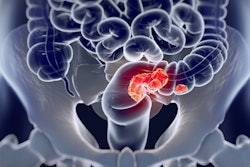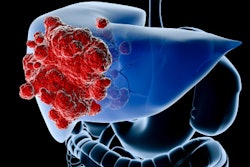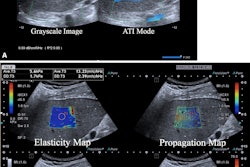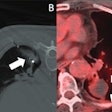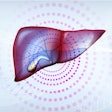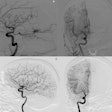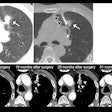Weekend admission for transjugular intrahepatic portosystemic shunt (TIPS) procedures is tied to higher mortality risk and post-procedure morbidity, suggest findings published June 12 in Clinics and Research in Hepatology and Gastroenterology.
Researchers led by Renxi Li from George Washington University in Washington, D.C., found that cirrhosis patients admitted over the weekend for TIPS procedures exhibited higher incidences of mortality, hepatic encephalopathy, acute kidney injury, and transfers to alternate hospital facilities. They also experienced longer times from admission to surgery, extended hospital stays, and higher overall hospital costs.
“These insights highlight the existing inequality in healthcare provision during weekends in patients who undergo TIPS procedures,” Li and colleagues wrote.
TIPS is an interventional radiological procedure used to bypass the portal vein system. Here, a stent is inserted a stent to connect the portal veins to adjacent blood vessels that have lower pressure. This relieves the pressure of blood flowing through the diseased liver and can help stop bleeding and fluid backup.
While TIPS can be a life-saving procedure for patients with end-stage cirrhosis, the researchers noted a lack of data on how weekend admission could play a role in exacerbating complications from the procedure.
Li and co-authors studied whether such admission could impact TIPS procedures, identified postoperative outcomes that are affected, analyzed the duration of hospital stay and associated costs, and explored underlying factors contributing to this association.
The study included data collected between 2015 and 2020 from 6,658 patients who underwent TIPS procedures. The team stratified the patients into 1,119 weekend patients and 5,539 weekday patients.
Weekend patients had significantly higher in-hospital mortality, hepatic encephalopathy, acute kidney injury, and transfer-out risk compared with weekday patients, according to the results.
| Risk comparison between weekday, weekend patients undergoing TIPS procedure | ||||
|---|---|---|---|---|
| Measure |
Weekday patient |
Weekend patient |
Adjusted odds ratio (aOR) |
p-value |
| In-hospital mortality |
8% |
12.9% |
1.62 |
< 0.01 |
| Hepatic encephalopathy |
26.2% |
33.2% |
1.41 |
< 0.01 |
| Acute kidney injury |
28.4% |
39% |
1.68 |
< 0.01 |
| Transfer out |
12.8% |
16% |
1.33 |
< 0.01 |
The researchers also reported the following:
- Weekend patients had longer average wait times from admission to operation compared with weekday patients (3.8 days vs. 2.8 days, p < 0.01).
- Weekend patients had longer average lengths of stay (11.3 days vs. 8.4 days, p < 0.01).
- Weekend patients had higher total hospital charges ($219,973 vs. $172,663, p < 0.01).
The study authors suggested that eliminating delays tied to this weekend effect could help bridge gaps between treatment for weekend and weekday patients. Examples may include having sufficient staff on hand during weekends and improving access to diagnostic and treatment procedures.
“By addressing these issues, we can strive to deliver consistent and high-quality care to all patients, regardless of the day of admission,” the authors wrote.
The full results can be found here.





